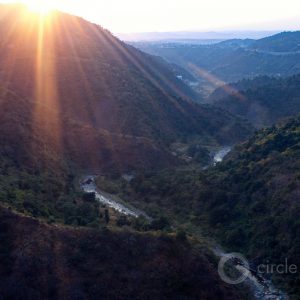The Stream, February 8, 2019: Violent Storm Sparks Landslides, Washes Away Buses in Rio de Janeiro
The Global Rundown
Severe storms deluge Rio de Janeiro, Brazil, leaving six people dead. Phoenix, Arizona, boosts its alternative water supplies in the face of Colorado River shortages. Wine production in South Africa’s Cape region is expected to be the lowest in years due to drought. An Idaho town asks neighboring cities for water after exhausting its own aquifer. The Trump administration looks to ease environmental regulations on waterways in California’s Central Valley.
“Our review will take a hard look at the proposed operations, focus on the biological needs of important fish and wildlife species, and determine whether the Bureau responded to our previous concerns.” –Chuck Bonham, director of the California Department of Fish and Wildlife, in reference to a 871-page “biological assessment” of water use in the Sacramento-San Joaquin Delta. The assessment, released by the U.S. Bureau of Reclamation, recommends relaxing environmental regulations and shifting water resources away from cities and wildlife for agricultural use. The Sacramento Bee
Latest WaterNews from Circle of Blue
Despite Unity of Purpose, Familiar Schisms Appear As California Lawmakers Rekindle Clean Water Funding Debate — Three options on are the table for helping water utilities deliver clean water.
HotSpots H2O: Resource Conflicts Rattle Nigeria in Lead-Up to Elections — Conflict between farmers and herders over water and pasture shook Nigeria in recent years, leaving more than 1,500 people dead in 2018.
By The Numbers
110 kilometers per hour (68 mph) Speed of winds in Rio de Janeiro, Brazil, as a severe storm lashed the city late Wednesday night. Heavy rainfall caused flooding, landslides, and road closures, even sweeping away buses in parts of the city. The city’s mayor Marcelo Crivella said that “a lot of water” was responsible for the deaths of at least six people. Reuters
1,238,000 tons Size of the 2018 wine grape harvest in South Africa, down by 14 percent from 2017. Wine production this year is expected to be even lower as the industry struggles to recover from a 3-year drought. News24
Science, Studies, And Reports
Faced with minimal rainfall and a dwindling Colorado River, the city of Phoenix, Arizona, is working to boost its drought resiliency. The city has strategically built dams, developed underground storage reservoirs, and set up wastewater recycling systems. City officials say Phoenix is prepared if severe drought fully depletes the Colorado River. Yale Environment 360
On The Radar
The town of Mountain Home, Idaho, has depleted its groundwater supply, largely due to groundwater pumping for agricultural use. Now, with household wells running dry, the town is hoping to recharge its aquifer using water flows from neighboring communities. As the Idaho Department of Water Resources weighs the request, some experts are asking whether recharging depleted aquifers is a sustainable concept in the long-term. High Country News
Kayla Ritter is a recent graduate of Michigan State University, where she studied International Relations and Teaching English to Speakers of Other Languages. She is currently based in Manton, Michigan. Kayla enjoys running, writing, and traveling. Contact Kayla Ritter








Leave a Reply
Want to join the discussion?Feel free to contribute!